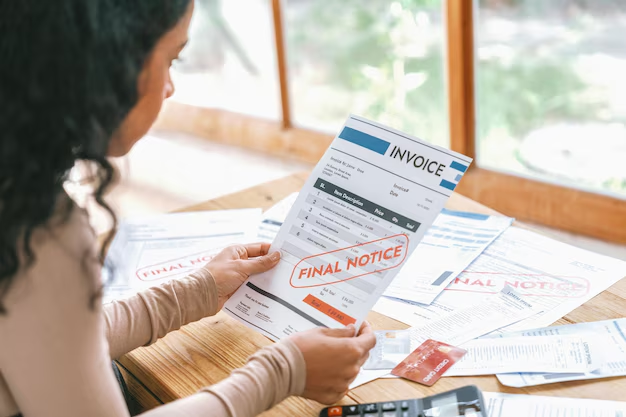How Much VA Loan Can You Really Qualify For in 2023?
Are you contemplating using a VA loan to purchase your dream home? VA loans are a phenomenal benefit for eligible veterans, active-duty service members, and certain members of the National Guard and Reserves. They offer unique perks, like zero down payment and no private mortgage insurance (PMI), making homeownership more accessible. But how do you determine how much VA loan you qualify for? Let’s demystify this process, explore the ins and outs of VA loans, and help you prepare for one of the biggest financial decisions of your life.
Understanding VA Loan Eligibility
Before diving into the qualifications, it's important to grasp who can apply for a VA loan. Generally, VA loans are available to:
- Veterans: Those who have served in active duty and have been discharged under conditions other than dishonorable.
- Active-duty service members: Those currently serving in any branch of the military.
- National Guard and Reserves members: Typically after six years of service or 90 days of active service.
- Surviving spouses: Of veterans who died during service or from a service-related disability, under certain conditions.
Basic Eligibility Criteria
- The applicant must have a valid Certificate of Eligibility (COE).
- Meet minimum service requirements.
- Satisfactory credit score, generally following lender requirements.
- Stable income to cover monthly payments.
It's crucial to confirm your eligibility status before proceeding, as it lays the groundwork for how much you can borrow.
Determining Your VA Loan Amount
The VA doesn't set a maximum loan amount but guarantees up to a certain amount of the loan, allowing lenders to offer more favorable terms. However, the actual loan amount you qualify for depends on several factors. Here's a closer look:
1. VA Loan Entitlement
The entitlement is a key factor in determining how much you can borrow. It essentially represents the amount the VA is willing to repay lenders if you default. There are two types of entitlement:
- Basic Entitlement: Typically $36,000, but not directly indicative of how much you can borrow.
- Bonus (or Secondary) Entitlement: May provide an additional amount that varies by county, allowing for larger loans.
In 2023, VA guidelines allow full entitlement, meaning there's no limit to the mortgage amount if you have full entitlement and meet lender standards.
2. Income and Debt-to-Income Ratio (DTI)
The DTI ratio assesses your monthly debt payments relative to your monthly income:
- Residual Income: VA guidelines prioritize residual income (the leftover funds after paying debts), favoring a higher threshold than generic DTIs.
- Front-end Ratio: Ideally around 28%, though some lenders are flexible.
- Back-end Ratio: A standard measure below 41% may be preferred, but exceptions can apply.
3. Credit Score
While the VA doesn't impose minimum credit scores, most lenders seek a score of at least 620. A higher credit score could mean more favorable terms and higher borrowing potential.
4. Property Location and Type
The property you're purchasing and its location can also impact loan limits. High-cost areas often have higher loan limits, thus impacting how much you may qualify to borrow.
Exploring Loan Scenarios
Let’s consider a scenario to illustrate these concepts:
Scenario: Buying a Home in a High-Cost Area
- Service Member: Honorably discharged veteran
- Location: San Francisco Bay Area (high-cost area)
- Credit Score: 680
- Monthly Income: $7,000
- Monthly Debts: $1,200
Calculating Loan Affordability
Entitlement: With full entitlement, there could be no loan limit, but understanding lender DTI requirements remains crucial.
DTI Analysis:
- Back-end DTI: ($1,200 debts / $7,000 income) = 17.14% (well within standard limits, suggesting potential approval for a higher loan amount).
- Residual Income: Approximately calculated by considering taxes, debts, and household expenses, which should comfortably meet VA residual income requirements for the family size and region.
Tip: Work with lenders to leverage full entitlement opportunities, especially in high-cost regions, maximizing your benefit under the VA loan program.
Navigating the VA Loan Process
A step-by-step guide to prepare for a VA loan can enhance your confidence:
Step 1: Obtain Your Certificate of Eligibility (COE)
- Access VA eBenefits portal or consult your lender, who can often acquire it quickly.
Step 2: Choose the Right Lender
- Compare lenders known for accommodating VA loans to find the best fit for your financial profile.
Step 3: Pre-Approval Process
- Get pre-approved, providing a concrete idea of your borrowing capacity, which strengthens your negotiation power when house hunting.
Step 4: Home Shopping
- Focus on properties within the pre-approved amount, considering VA-specific property considerations.
Step 5: VA Loan Application
- Once your offer is accepted, process the formal VA loan application, providing necessary documentation for verification.
Step 6: Closing and Homeownership
- Engage in a seamless closing, thanks to potentially reduced closing costs typical with VA loans.
Practical Summary with Key Steps and Tips 🏠
- Eligibility First: Validate eligibility against VA standards.
- Understand Entitlement: Leverage full entitlement opportunities.
- Focus on DTI: Maintain manageable debt levels to optimize loan limits.
- Consult Experts: Financial advisors or VA lenders can provide personalized guidance.
Final Insights
The journey to understanding "how much VA loan do I qualify for" involves several moving parts, from determining your eligible entitlement to assessing affordability based on income and debts. Working with knowledgeable VA lenders can help you navigate these complexities, optimizing your determination to secure a VA loan that aligns with your homeownership goals.
Remember, while this guide provides a structural breakdown of VA loan eligibility and qualifications, individual circumstances are unique and can impact final lending decisions. Take time to explore your specific entitlements, financial readiness, and use VA resources available to you. This way, you will strategize effectively for your VA loan application, making the process as seamless and rewarding as possible.

Related Topics
